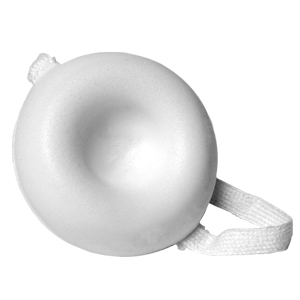While abstinence is always the most effective form of birth control, it is not always the best choice.
For women who wish to have sex and avoid pregnancy, some type of birth control will be necessary.
However, choosing the best form of birth control is not always easy.
While many forms of birth control can be effective and safe, some do have specific side effects and can increase the risk of other health complications.
Oral Contraceptives
Oral contraceptives can be 99.9% effective at preventing pregnancy, if used correctly. You must take the pill every day, at the same time. Birth control pills can help prevent ovarian cancer and certain reproductive infections.
However, when taking the pill you may experience nausea, headaches, weight gain, or breast tenderness. Birth control pills are not effective for prevention against STDs or AIDS either.
To protect from these diseases you must use a physical barrier. When used correctly you can enjoy intercourse at anytime without the fear of pregnancy.
However, if a pill is forgotten or missed your chances of becoming pregnant can increase greatly.
Single Use Contraceptives
Single use contraceptives such as condoms or spermicides can be very effective for one time use. Condoms, and some types of spermicides, are also effective, when used correctly, to prevent the transfer of fluids containing sexually transmitted diseases or AIDs.
However, these methods have to be used immediately before or during sex. These birth control methods can be 97% to 99.9% effective if used correctly.
However, if used incorrectly the protection rate can drop below 25%. It is estimated that only a small portion of people understand, and practice, the correct use of these birth control methods.
Implants, Shots, and IUDs
Implants can be inserted directly into your arm that will last up to five years, and provide a high rate of pregnancy prevention. An IUD can be put into place for up to ten years of protection. Shots can be taken once every four months, that will prevent pregnancy.
All of these methods provide care free birth control. You don’t have to remember to use, or take anything, on a daily basis or before sex. However, these methods provide no protection against sexually transmitted diseases.
These types of birth control are best when used in women who are in a monogamous relationship, and fear no risk of getting a disease.
Permanent Birth Control
There are two methods of permanent birth control. Women can have their tubes cut, tied, and burned, or men can have a vasectomy completed. Both procedures are considered permanent, since it requires surgical reversal to correct either procedure.
Women will have to undergo surgery to have the process completed, while a vasectomy only requires topical anesthetic. Once completed, the procedure is considered almost perfect protection.
In addition, after a few years the procedure is often flawless. However, this procedure should not be chosen lightly. It can be very expensive to have the procedures reversed, and there is no guarantee that fertility will return.
In some cases, it is impossible to become pregnant, even after having the procedure reversed.






are there any contraceptive pills awailable to avoid pregnancy after one month and are there any chances of pregnancy after having unprotected sex if one gets menstrual cycle.